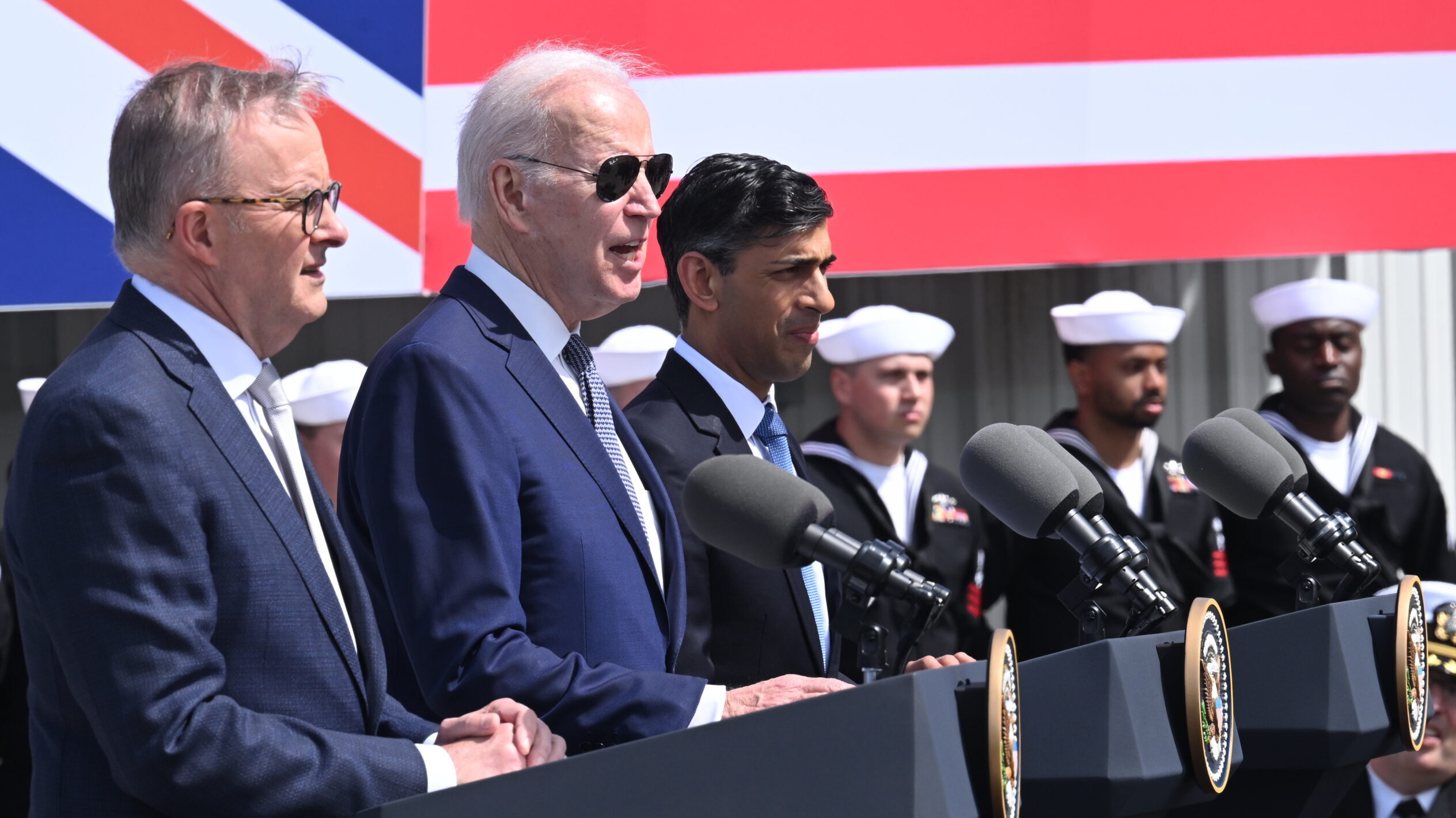JASPREET GILL

Australian Prime Minister Anthony Albanese (L), US President Joe Biden (C) and British Prime Minister Rishi Sunak (R) hold a press conference after a trilateral meeting during the AUKUS summit on March 13, 2023 in San Diego, California. (Leon Neal/Getty Images)
WASHINGTON — The White House is set to make a new announcement on the future of the trilateral security pact known as AUKUS sometime later this year, the Pentagon’s chief technology officer said today.
Heidi Shyu, under secretary of defense for research and engineering, said she expected the announcement to come sometime in the “fall.” And while she did not give details about what the announcement would be, her role in the discussions and her technology portfolio means it likely has to do with the so-called Pillar 2 AUKUS track.
“The president will be announcing, so I don’t want to get ahead of him or the [secretary of defense], but I did propose something to [the secretary of defense], which he loved,” Shyu told reporters at the National Defense Industrial Association’s Emerging Technologies for Defense conference today.
“So it will be coming soon, we’re flushing out the details on the critical technology,” she continued. “So it will be more of a portfolio approach rather than here’s, you know, all these technologies on the table, right? Independent technology….A path that I proposed is linking that together to show a portfolio of capabilities. So that will be coming out soon.”
While much of the attention around AUKUS has come from the decision to give nuclear submarine technology to Australia and the development of an AUKUS-class sub for use by both London and Canberra, there has also been quieter discussion around what is known as AUKUS Pillar 2. That involves co-development on technologies such as artificial intelligence, quantum computing, cyber, undersea capabilities, hypersonic weapons, information-sharing and electronic warfare.
The potential for other countries to join up for Pillar 2 — New Zealand has openly discussed the idea, although it is politically sensitive — is seen in Washington as a way to expand US military relations in the region. But while Shyu sounded open to the idea of engaging with new partners in the future, she said DoD needs “time to show success first via” the initiative.
“First of all, it is hard enough to work across — bilat is already hard enough, we’ve got a trilat,” she said. “And now you’re trying to expand even more because each additional layer, a country you’re bringing in, that means you got to share the technology, you have to have the network to be able to share the information so it doesn’t leak, right, into your adversaries hands. So it just complicates things a lot greater.”
No comments:
Post a Comment